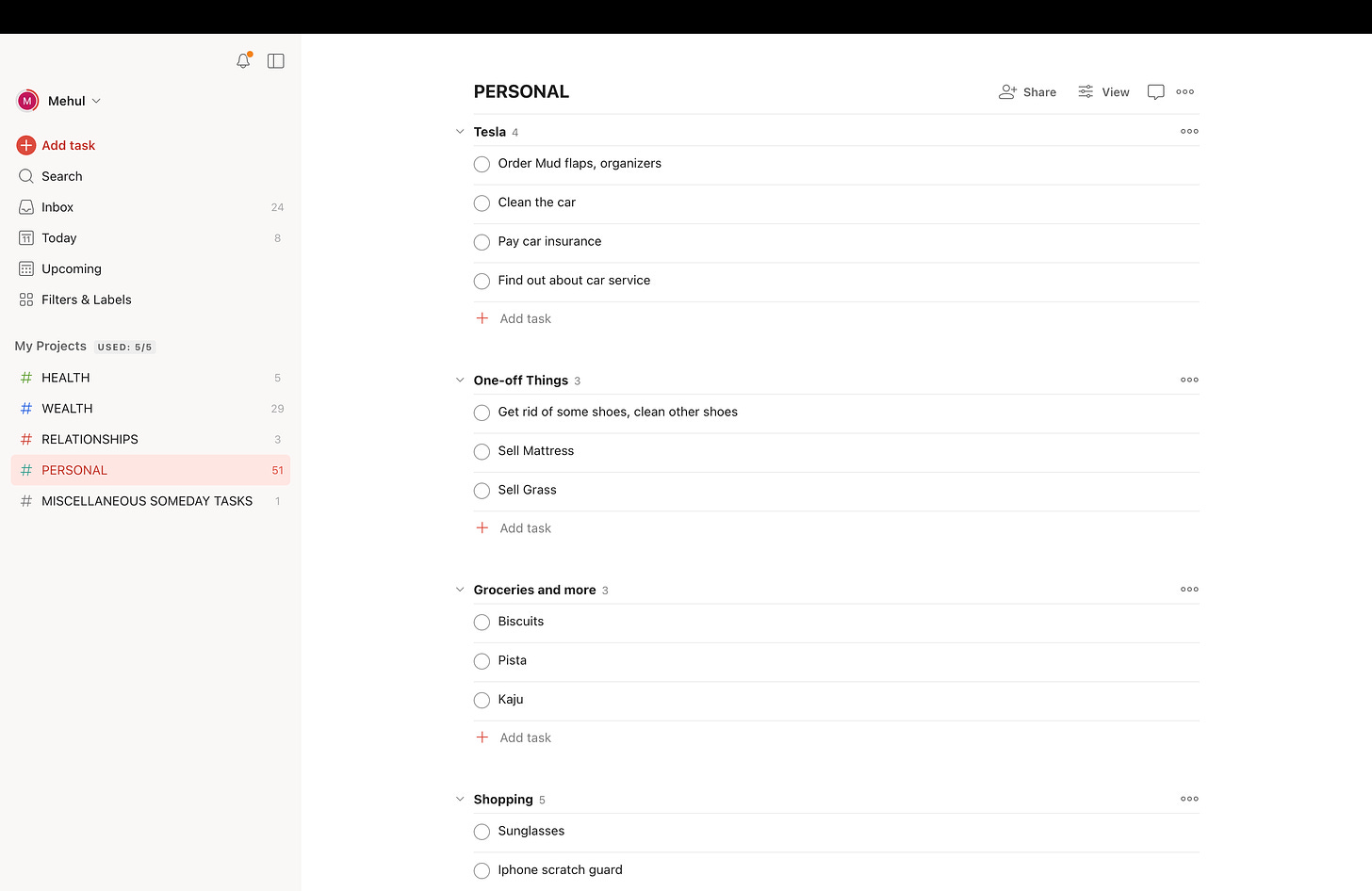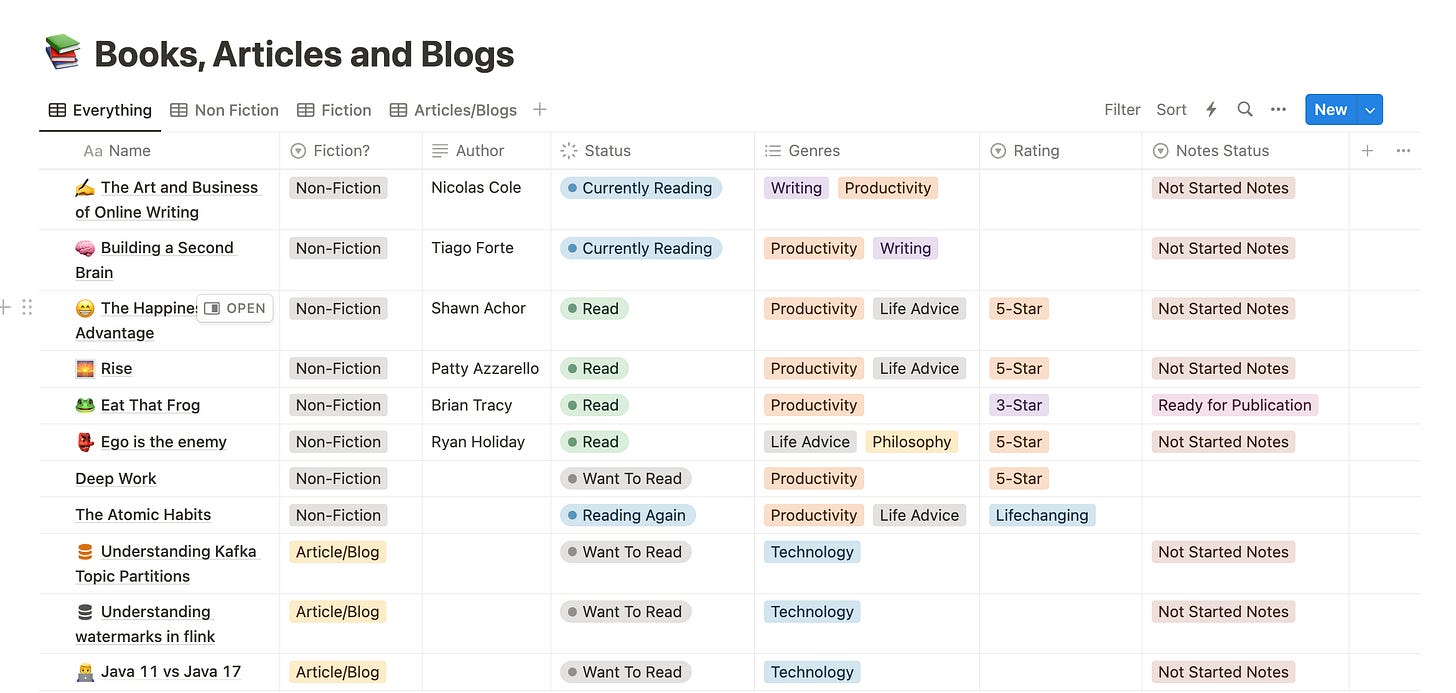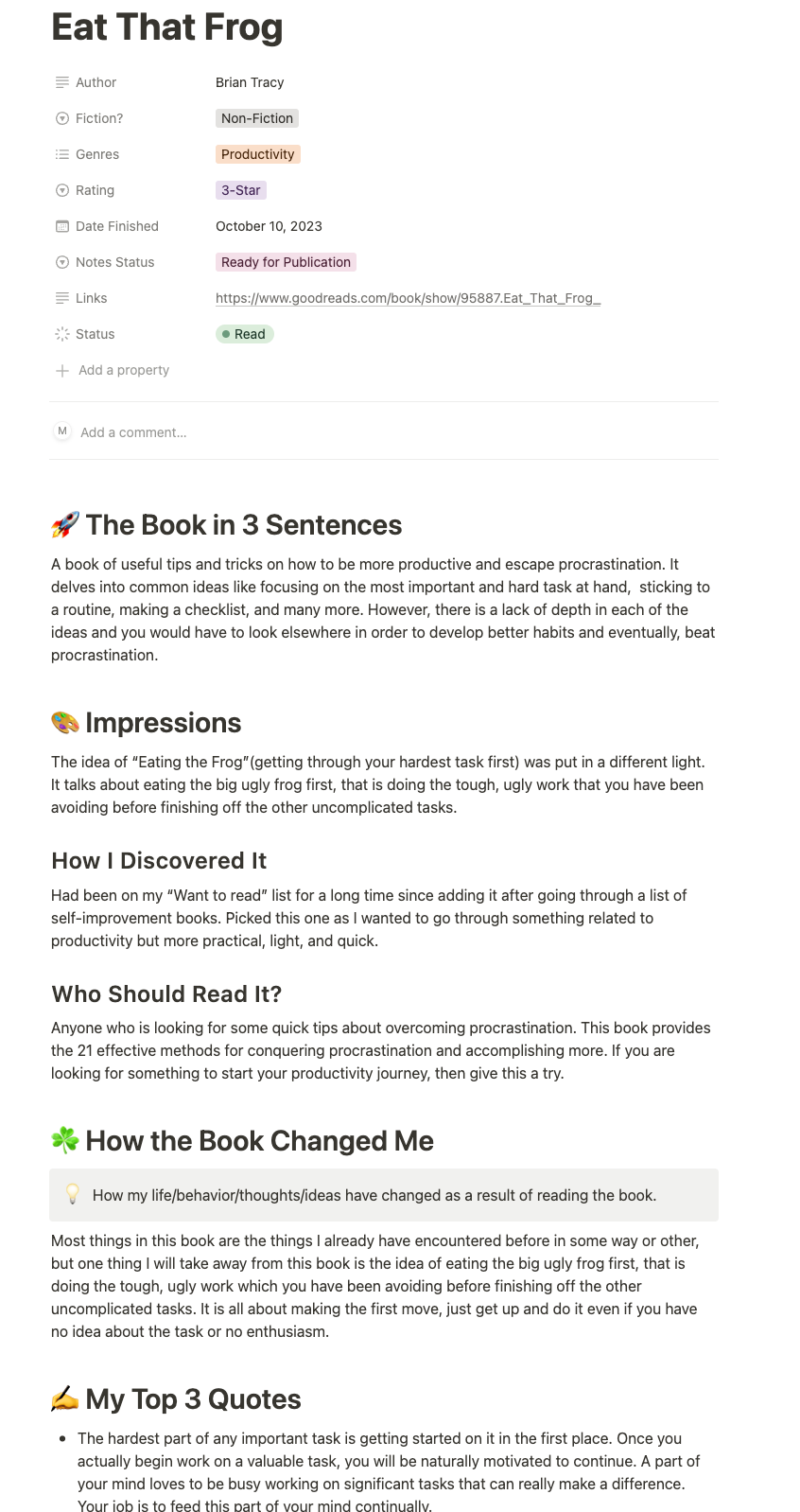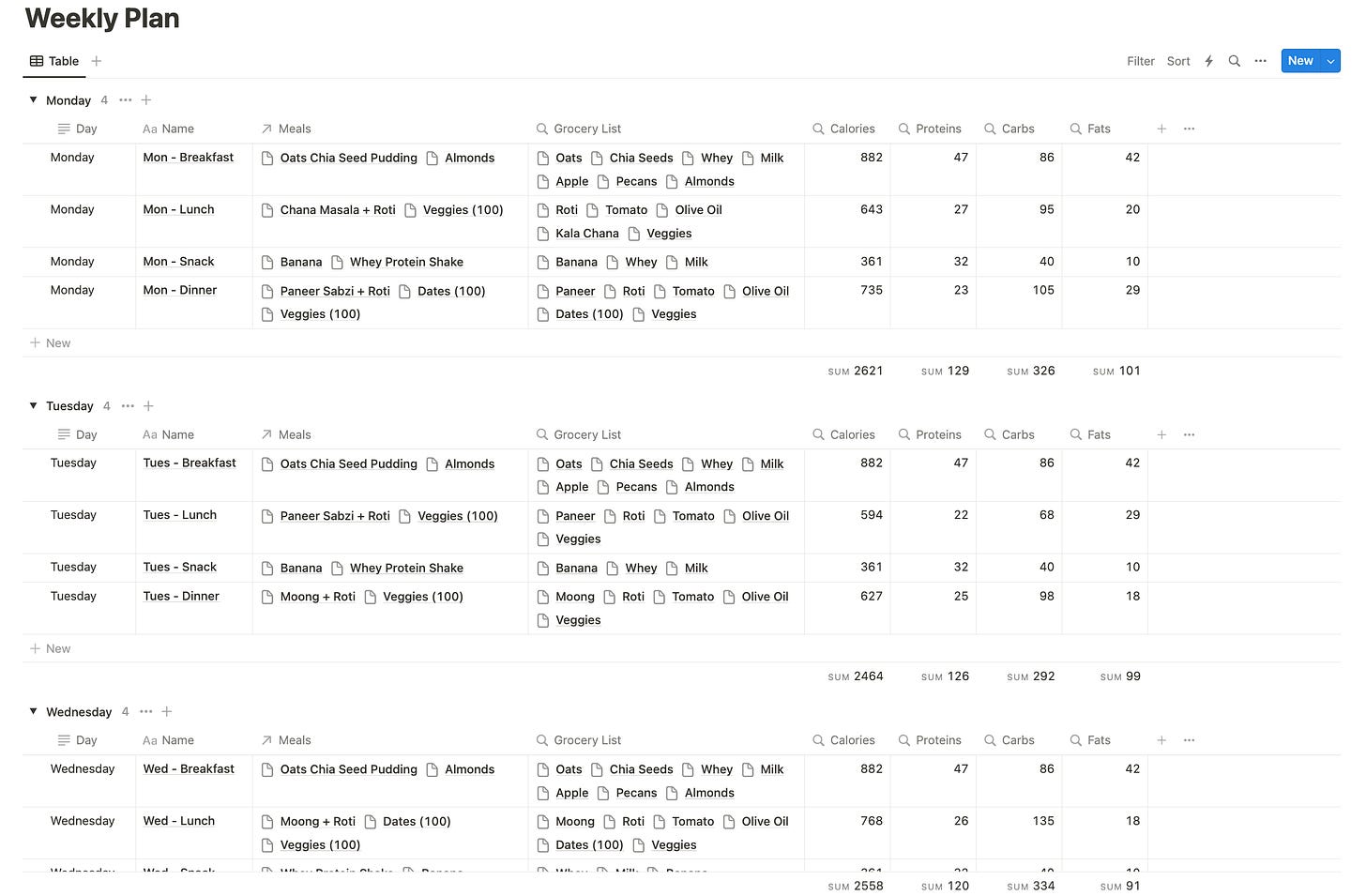Plan Like A Pro
Proven Techniques to Plan Better and Achieve More in Less Time
Hey Friends,
Unfortunately, this marks the end of our Monday chats. It's been a good run, hasn't it? But fear not, I'm just switching things up – Sunday is the new Monday in my world, lol. I know, it happened faster than a plot twist in a movie, but I had to tweak my strategy as soon as possible. Two big reasons: Firstly, most of you awesome readers are in full Monday mode, juggling work and busy schedules. Secondly, I'm all about starting my week on a Sunday, setting the stage for what lies ahead in the week so doing this helps me start my week with reflection on my previous week and then plan from there. Now, let's begin:
Ideas That Are Changing My Life
How To Plan Better and Faster Than Ever Before
Today, I will share with you some key insights into more than 200 hours of my work in the past year which I have spent reading and watching a lot of content on how to take charge of the chaos and become productive almost instantaneously. A lot of these ideas are inspired by the books Winning the Week, 7 Habits of Highly Effective People, Ali Abdaal's YouTube channel, and more.
STRATEGY #1: Planning doesn't turn you into a machine; it makes you more human.
Shift your perspective on planning. While some view it as dehumanizing or something that makes us more robotic, planning is, in fact, an intrinsic human quality - an essential element for staying organized, thoughtful, and intentional in life. If you're one of those who associate planning only with work or significant events, broaden your view. Normalize planning as a part of your daily and weekly routine to witness compounded results over time
STRATEGY #2: 2 hours of planning = 20 hours saved.
Allocate a minimum of 2 hours weekly for strategic planning. Use this time to brainstorm and optimize various aspects of your life for better organization and planning including your work, hobbies, interests, etc.
For the past 6 months, I have been allocating about 2-3 hours over the weekend to plan for my week ahead and identify any leveraged priorities. I plan for all kinds of things - work, household chores, social time, hobbies, and planning itself, haha.
Leveraged Priorities, as outlined in the book "Winning the Week," refer to tasks that, when accomplished, significantly ease the completion of other activities. Take planning, for instance—it became a leveraged priority for me. By incorporating planning into every facet of my life, I gained control and streamlined my days. This shift not only made life more manageable but also freed up time for tasks that were just sitting on my TODO list forever.
Identify your Leveraged Priorities and consistently work on them, week after week, and see how they positively impact various aspects of your life, enhancing your efficiency and satisfaction.
STRATEGY #3: The key is not to prioritize what is on your schedule, but to schedule your priorities.
The above line from Stephen Covey is from one of my most favorite books "The 7 Habits of Highly Effective People". While planning your week, keep these few things in mind so that you are not taken by surprise by things that appear in your week from nowhere.
Ensure a 14-day review of your tasks and goals when you plan your week. Let's say you're planning on 10th Dec for the week (11th Dec to 17th Dec) and you have an important deliverable on 18th Dec - there is a chance you can get blindsided to this important detail and not allocate time for it. By looking two weeks ahead, you can proactively allocate time in the coming week for significant tasks in the next week as well, avoiding last-minute surprises and ensuring a well-prepared weekly plan.
Maintain an ever-growing 'Someday List' by consistently adding new ideas or tasks that come to mind. Whether it's trying a new sport, learning to surf, planning a trip, selling all your stuff to move into a new apartment, or a new small finding at work that you can take on later to create a bigger impact, the list is endless so capture these thoughts promptly to avoid losing them.
The idea is to have two separate lists “Someday List” and “Active To-Do List” - The “Someday List” houses tasks not feasible at the moment but worth revisiting in the future. During weekly planning, review this list and transfer suitable tasks to the “Active To-Do List” based on your current bandwidth. Also, get comfortable with the idea that something can be completely worthy of your time but you still might not ever get around to doing it.
Use a Decision Tree approach for weekly task selection - Is it related to the leveraged priority? Is it incredibly time-sensitive? Can this task be terminated, automated, consolidated, outsourced or is it a someday task?
I use the Apple Notes app for immediate capture and the Todoist app for organization, but you can use any digital app that you're comfortable with. Digital Apps, purely because of their accessibility since it’s very difficult to manage to have a pen and paper everywhere you go all the time in my opinion, but if that is what works best for you, go for it!! I categorize my “Someday List” into 5 major categories - Health, Wealth/Work, Relationships, Personal, and Miscellaneous Someday Tasks, all of these have multiple subcategories within them. Below is an example of my Someday Task List for Personal Category:
Calendarize your tasks - Use a calendar to time-box your tasks, I use Apple Calendar. Here are some guidelines when scheduling:
Begin by scheduling self-care, play, social, and creative time first; they offer instant gratification to your planning session.
Prioritize the most important and planned tasks at the beginning of your week and day. Research suggests our energy diminishes as the day and week progress, so capitalize on Monday > Friday and Mornings > Evenings for crucial tasks.
Always allocate a 20-30% buffer time for each task.
Dedicate specific time daily to focus on your leveraged priority and deep work.
STRATEGY #4: Either you run the day or the day runs you.
Commit 15 minutes daily to planning your day—whether it's at the end of the previous day or the morning of the current day. I prefer doing it at night, right before I sleep. I also take a quick morning glance to accommodate any last-minute urgent items, setting the tone for the day. In my Todoist app, I jot down a list of tasks for the next day, which is essentially a subset of my weekly plan.
This daily list might occasionally deviate due to unexpected urgencies at work or in personal life. It's crucial not to be too hard on yourself on those days. Think long-term; life is a journey, and flexibility is key.
STRATEGY #5: Plan and Organize all important things in your life if it's possible
Better planning and organization foster greater clarity, leading to improved decision-making. Lately, I've applied this practice to areas like reading and diet planning, aiming to extend it to other aspects such as travel, content creation, and even content consumption.
As an avid reader, I like to capture key ideas and my interpretations for each book. To facilitate this, I utilize a Notion template I discovered online to track my reading progress. Within each book, I maintain a summary highlighting the most impactful insights. It's important to note that this system is still, a work in progress, with plans to refine and expand it into a more comprehensive system soon. Below are the screenshots of My Progress Tracker for Books, Articles, and Blogs:
Similarly, I have recently enrolled in a weight-gaining program with a health coach at FITTR. His customized diet plan involves a significant increase in my calorie intake and also, requires me to keep track of my macros. To streamline this on a weekly and daily basis, I found myself a Notion template online for my weekly nutrition planning and changed it to suit my needs. Below is a screenshot of My Online Nutrition tracker on Notion:
These strategies offer a glimpse into my planning approach, yet the world of planning is vast and varied. These are some of the things that work for me and I intend to double down on these going forward. I'm curious about your planning habits - do you prioritize daily or weekly planning? What key practices contribute to a productive week? Did any of the strategies mentioned above resonate with you, or did you find that none of them aligned with your preferences? I'd love to hear your thoughts. Feel free to share your insights in the comments below with your thoughts, sparking a constructive conversation on planning.
Things I Loved This Week
Nikhil Kamath's episode on WTF Does It Take To Build Influence Today - One of my friends from UCI suggested this video around content creation and I loved this. The insightful 3-hour discussion on content creation prompted a significant shift in my approach. It made me realize that I was heading in the wrong direction with my current content creation strategy. As a result, I intend to pivot my approach, considering significant modifications or potentially abandoning my current Instagram pages—travel.with.mehul and read.with.mehul. The goal is to adopt a clearer strategy for my content creation efforts and that resonates with me a lot more. Stay tuned for more details on this soon!
A Man Called Otto - Heart-warming. Recommend it if you're looking for a new movie to watch.
See you guys next week! Happy Planning :D
- Mehul




